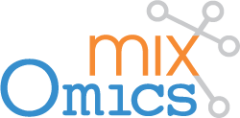Unfortunately the workshop planned face to face on 28-30 June 2021 will not go ahead because of a Melbourne lockdown that threatens the NZ bubble. Anticipated new dates are 26-29 October. For those who responded to our survey, we have saved your answers for later. For those interested to join in (preferably face to face), you can fill the survey.
For participants who had planned to join remotely, an online course is likely to be developed and open from October 2021. It might provide a better experience than a talking head on zoom! Information will be posted on our website.
———-
We are thrilled to announce that we are resuming our workshops! This time we will attempt to leverage the Australia-NZ bubble for a face to face workshop, hosted at Massey University, Palmerston North with co-organiser Dr Matthieu Vignes*.
Fill the survey so that you can register your interest and needs for this workshop. We can only allow a limited number of participants, so lock in those dates already in your calendar before we can confirm your participation! Priority will be given to postgraduate students and early career researchers. Results will be announced to the participants with details for registration on June 8.
*this workshop might be cancelled last minute due to travel restrictions AUS/NZ.
Context. Advances in high-throughput technologies have transformed the way we examine molecular information, including microbial communities. However, analytical tool development is critically trailing behind data generation, which hinders the analysis, understanding or integration of microbiome data with other types of molecular data. Data integration adopt a holistic, data-driven and hypothesis-free approach. This new approach is necessary to understand the role of biological systems and posit new hypotheses.
The workshop will introduce concepts of multivariate dimension methods developed in mixOmics for statistical analysis. Our methods make no distributional assumptions, are highly flexible for unsupervised (exploratory), supervised (classification) and integration analyses. Various analytical frameworks will be presented ranging from data exploration, selection of markers, integration with other omics datasets and introduction to time-course analysis. There will be an opportunity also to talk about the analysis of microbiome data.
Each methodology will be illustrated on real biological studies. The third day is ‘BYO data’ day where you can reinforce your learnings on your own study! The workshop will cover general omics data integration concepts with appropriate case studies.
Instructor: A/Prof Kim-Anh Lê Cao;Tutors: TBA
Organized and hosted by: Massey University, Palmerston North
Indicative fees for 3 days are NZD490+GST for RHD students, NZD810+GST for Universities and CRIs/non-profit organisations, NZD1290+GST for other industries. We will seek sponsors to support the registration costs for 4 RHD students (application via our survey).
Registrations fees include coffee breaks, lunch, lecture notes and electronic material (slides, R code, data).
Registration Fill the survey and lock the dates in your calendar! As we have a limited number of participants (30), priority will be given to postgraduate students and early career researchers. Results will be announced to the participants with details for registration on June 8. Online attendance is also available for a limited number of participants (but with reduced opportunities for interactions).
Location: TBA, Massey University
Contact: mixomics[ at] math.univ-toulouse.fr (for pre-requisite or content)
Prerequisite and requirements. We require from the trainees a good working knowledge in R programming (e.g. handling data frame, perform simple calculations and display simple graphical outputs) to fully benefit from the workshop. Participants are requested to bring their own laptop, having installed the software RStudio http://www.rstudio.com/and the R package mixOmics (instructions will be provided prior to the training).
Outline
Day 1 & 2: methods and hands-on. The following broad topics will be covered.
A. Key methodologies in mixOmics and their variants:
- Basic processing of count data (scaling, how to handle compositional data)
- Exploration of one data set and how to estimate missing values
- Identification of a microbial signature to discriminate different treatment groups
- Integration of two data sets and identification of microbial markers
- Introduction to repeated measurements or longitudinal studies analysis
- How to deal with batch effects
- Integration of more than two data sets to identify multi omics signatures (if sufficient interest)
- Integration of independent but related studies (optional)
B. Review on the graphical outputs implemented in mixOmics
- Sample plot representation
- Variable plot representation for data integration
- Other useful graphical outputs
C. Case studies and applications
Several omics studies (and microbiome if there is some interest) will be analysed using the methods presented above.
Day 3: bring your own data. Participants will be given the opportunity to analyse their own data under the guidance and the advice of the three instructors. Participants can also work in a team. Some data sets will also be provided for those unable to bring their own data.
The following statistical concepts will be introduced: covariance and correlation, multiple linear regression, classification and prediction, cross-validation, selection of markers, penalised regressions. Each methodology will be illustrated on a case study (theory and application will alternate).
Target group The course is intended for microbiologists working in the fields of bioinformatics, computational biology and applied statistics with some statistical knowledge and a good working knowledge in R. It will be particularly useful to those interested in:
- Exploring data sets.
- Selecting molecular / microbial features with methods implementing LASSO-based penalisations.
- Using graphical techniques to better visualise data.
- Understanding and/or applying multivariate projection methodologies to large data sets.
Anticipated learning outcomes After completion of this workshop, participants will be able to
- Understand fundamental principles of multivariate projection-based dimension reduction technique.
- Perform statistical integration and feature selection using recently developed multivariate methodologies.
- Apply those methods to high throughput microbiome studies, including their own studies.
